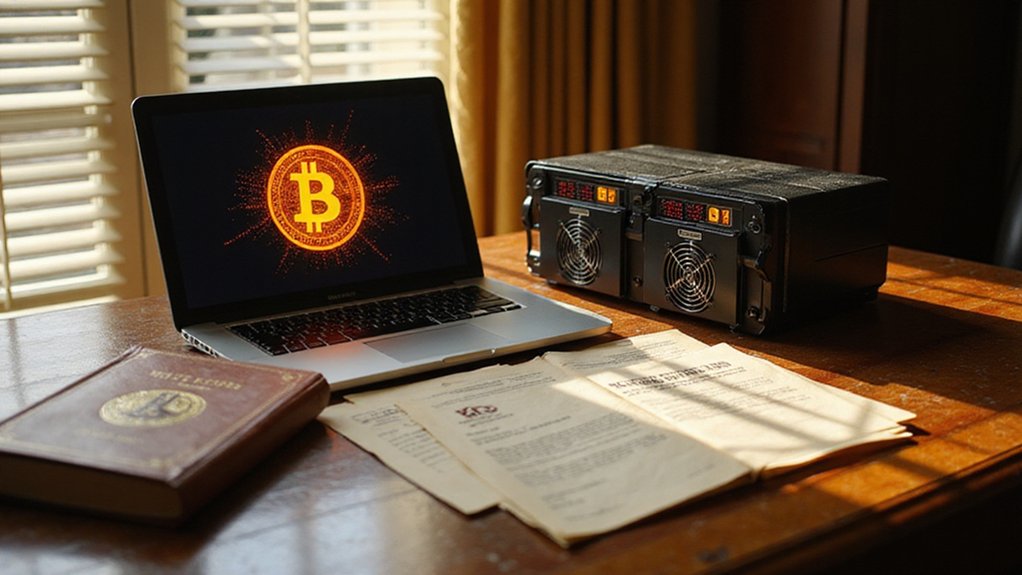A curious paradox has long plagued bitcoin miners in the United States: they face the peculiar burden of paying taxes twice on the same digital asset—once when they successfully mine it based on its fair market value at that moment, and again through capital gains if the bitcoin appreciates before they sell it.
This Byzantine tax structure stands in stark contrast to how other commodity miners operate. Gold miners, for instance, aren’t taxed when they extract ore from the ground—only when they sell it. Yet bitcoin miners have endured this double taxation framework while watching their operational capital drain into Treasury coffers at the most inopportune moments (namely, before they’ve actually monetized their efforts).
The White House’s recent report suggests a potentially game-changing shift: taxing bitcoin mining income at the point of sale rather than at extraction. This seemingly modest adjustment could fundamentally transform mining economics by aligning cryptocurrency with conventional asset taxation models.
Consider the cash flow implications. Under current rules, miners must generate immediate liquidity to cover tax obligations on assets they haven’t sold—a financial contortion that forces premature liquidations or external financing. The proposed framework would defer these obligations until actual revenue materialization, allowing miners to retain operational capital when they need it most. This burden has become particularly acute as mining has evolved from a hobbyist pursuit to industrial-scale operations requiring substantial upfront investment and ongoing operational expenses.
Industry leaders, including BitFuFu’s CEO, have identified this double taxation as a significant growth impediment. Legislative efforts like H.R. 8149 and the Responsible Financial Innovation Act already target similar deferrals for mining and staking rewards, suggesting broader political momentum behind the concept.
The profitability ramifications extend beyond mere timing. Enhanced cash flow could enable greater reinvestment in infrastructure, potentially accelerating the industry’s pivot toward renewable energy sources. Additionally, eliminating the complexity of current tax strategies could reduce compliance costs while attracting institutional investment previously deterred by regulatory uncertainty. The Treasury and IRS have been directed to reduce tax burdens and review existing guidance on digital asset activities as part of this comprehensive regulatory overhaul.
The White House report also confirms plans for a Treasury-managed strategic bitcoin reserve funded by forfeited digital assets—a development that underscores the government’s evolving relationship with cryptocurrency.
When combined with favorable tax treatment, this signals a remarkable transformation from regulatory hostility toward grudging acceptance, if not outright embrace, of digital asset legitimacy.









